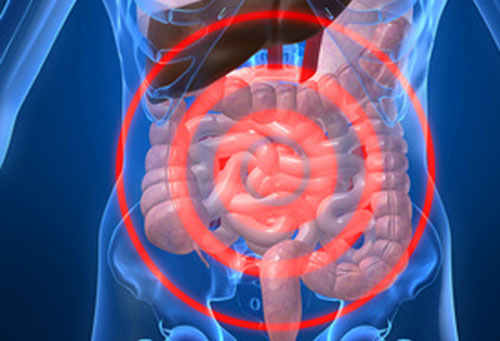
Genetic associations between inflammatory bowel disease (IBD) and stress related to depression have been uncovered by a novel study that combined 3D genomic mapping with publicly available data from genome-wide association studies (GWAS). Carried out by researchers at Children’s Hospital of Philadelphia (CHOP), the study further implicated new genes involved in IBD risk that are enriched in both derived hypothalamic neurons and organoids grown from colon cells. The former has a vital role in controlling stress and depression, the colon, meanwhile, is directly affected by IBD.
The findings were published earlier this month in Cellular and Molecular Gastroenterology and Hepatology. DOI: 10.1016/j.jcmgh.2020.10.004. This work builds upon an earlier study by the group which implicated a subset of IBD loci as conferring an effect via the hypothalamus.
“Our results implicate a role for the hypothalamus in the genetic susceptibility to IBD,” said senior author Struan Grant, Ph.D., a director of the Center for Spatial and Functional Genomics at CHOP and the Daniel B. Burke Endowed Chair for Diabetes Research. “Epidemiological data has previously shown overlap between IBD and stress and depression, and now we have generated genomics data to support that association. Our results suggest that the hypothalamus warrants further study in the context of IBD pathogenesis.”
IBD comprises Chron’s disease (CD) and ulcerative colitis. It is an immune-mediated condition marked by dysregulated inflammation of the gastrointestinal tract. More than three million people, or approximately 1.3% of all adults, suffer from this condition in the US alone.
Multiple genetic and environmental factors are known to contribute to the pathogenesis of IBD, and more than 230 loci for the disease have been uncovered using GWAS analyses. Many of the genes residing at these loci have been implicated in pathways related to the immune system and the microbiome.
The CHOP team first established whether there were genetic correlations between IBD and depression to assess the degree of genetic commonality between the two conditions. (Depression was used as a proxy for stress because of the limited number of published GWAS efforts that have focused on stress and used a consistent definition of it.) To do this, they analyzed eleven autoimmune diseases. They found that among those, IBD was most strongly statistically correlated positively with depression.
Next, the researchers validated the correlation between IBD and depression. First, they measured the enrichment of IBD-associated genetic variants in the 3D genomic patterns within hypothalamic-like neurons (HNs) and colonoids from rectal biopsies. They found a highly significant four-fold increase in HNs and a seven-fold increase in the colonoids. A proprietary “variant-to-gene mapping” approach, was then used to determine which genes are implicated in the pathogenesis of IBD at these enriched signals. By assessing those genes, the researchers then looked for pathways potentially influenced by IBD-associated genetic variants.
Using this variant-to-gene mapping effort, the researchers implicated 25 genes in HNs that conferred risk for IBD. Eleven of those genes have known functions in the brain, in particular CREM, CNTF and RHOA, which are genes that encode key regulators of stress. Seven of those genes were also implicated in the colonoids. The researchers observed an overall enrichment for hormonal signaling pathways as well as the expected enrichment in immune and microbiome signaling pathways.
“We propose that some IBD-associated variants alter the hypothalamus-pituitary-adrenal axis and stress responses, which could in turn play a role in predisposing patients to this disease and exacerbating its presentation,” Grant said. “Future studies are warranted to refine our understanding of the role of the hypothalamus in IBD onset.”













